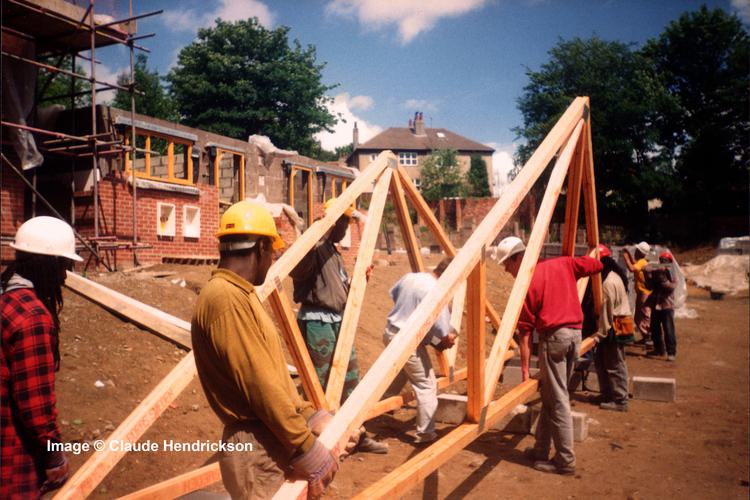The evolution of community-led housing in Leeds

Tibbalds

Neil McKenna, Senior Planner, has just published his first academic research paper, which explores the evolution of community-led housing in Leeds, a front-running city for community-led housing in England.
Alongside my work as Senior Planner at Tibbalds, I have been doing a part-time PhD research project looking at the transformative potential of community-led housing. I moved to Leeds in 2019 to make this both my new home and research case study, and have got involved with various projects and networks. Five years later, and I have now (finally!) published my first stand-alone paper from the wider PhD project.
There is lots of academic theory in the paper on the ‘commons’, which most people probably would not be interested in, and may find hard to relate to. I’m happy to pick up any questions if you give it a try! However, more practically, the research explores the evolution of community-led housing in Leeds, from the 1970s to now. It gives a broader context to more prominent and celebrated examples, such as LILAC, or ChaCo, evidencing the rich diversity of different community-led housing projects that have existed over time. All these projects have contributed to building local skills, knowledge and a range of role models to suit different communities and ways of living. It is from this local experience that Leeds Community Homes was able to form in 2015, providing a front-running regional enabling hub for community-led housing.
Some key things the research reports are:
- Peaks in local community-led housing activity relate to periods of national government support and funding. Local and regional networks of knowledge, land ownership, and sources of funding need to be developed to break out of this cycle.
- The community-led housing movement can be strengthened when you look at local histories over time, and recognise the contribution that all projects play in building expertise and providing role models for different communities and ways of living. This can contribute to ensuring community-led housing is led by diverse communities, such as black and minority ethnic communities as highlighted by recent research here.
- The form of community-led housing has shifted from a more intense model of communality in a shared house, to larger scale developments with individual houses and shared collective spaces. Varying levels of community participation are also evident over time. Recognising this can broaden what community-led housing is, and support greater choice to suit different needs and desires.
- Long term and targeted funding is required to build knowledge, skills, and support formation of organisations so that community-led housing can come from, and be led by, disadvantaged groups.
- New-build community-led housing is a very slow and complex process, and we need to complement these projects with the creation of community-led housing from the existing privately owned housing stock.
The research calls on people, civil society networks, and Leeds and West Yorkshire authorities, to recognise and celebrate the particular strength of community-led housing in Leeds, and build on it as a rare source of hope and inspiration against various societal crises. The research provides a detailed case study to support better collaboration between towns, cities and regions with national community-led housing networks, like CLT Network, UK Cohousing, Confederation of Cooperative Housing, National Custom and Self Build Association, and Radical Routes. Lastly, the research provides a strategic case for national government support, and underpins an argument for renewing the highly successful but short-lived Community Housing Fund (see Tom Chance writing about this recently, here), and to make this a permanent revolving fund rather than short programmatic commitment. This would give more power to important recent policy successes, like the strengthened commitment to community-led development in the new NPPF (see paras 73, 76, 168 and Annex 2), and the Community Right to Buy in the English Devolution White Paper.
You can read the research paper in full here: https://www.tandfonline.com/doi/full/10.1080/13604813.2024.2430059
The research was produced by Neil McKenna (University of Leeds), Professor Paul Chatterton (University of Leeds) and Dr Andrew Wallace (University of Greenwich).
Related Updates
Stay In Touch
Sign up to our Newsletter
Subscribe to our newsletter to receive updates about making people friendly places.